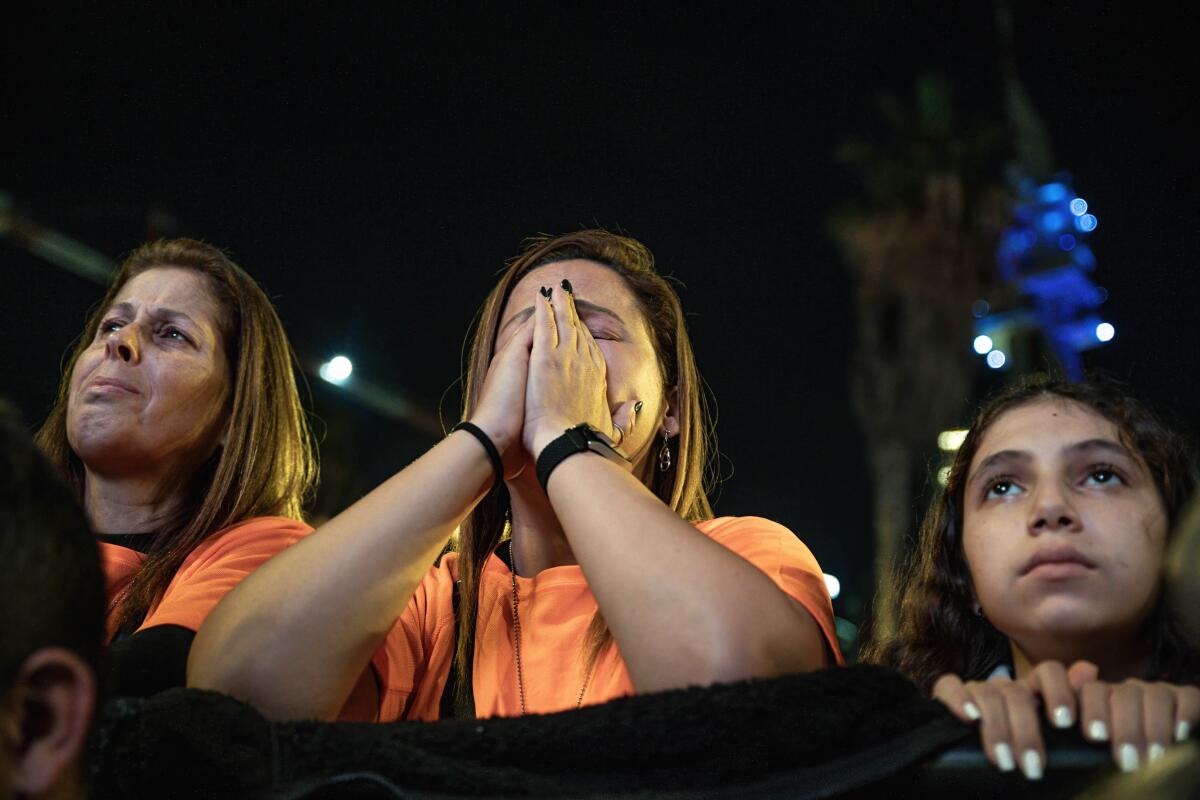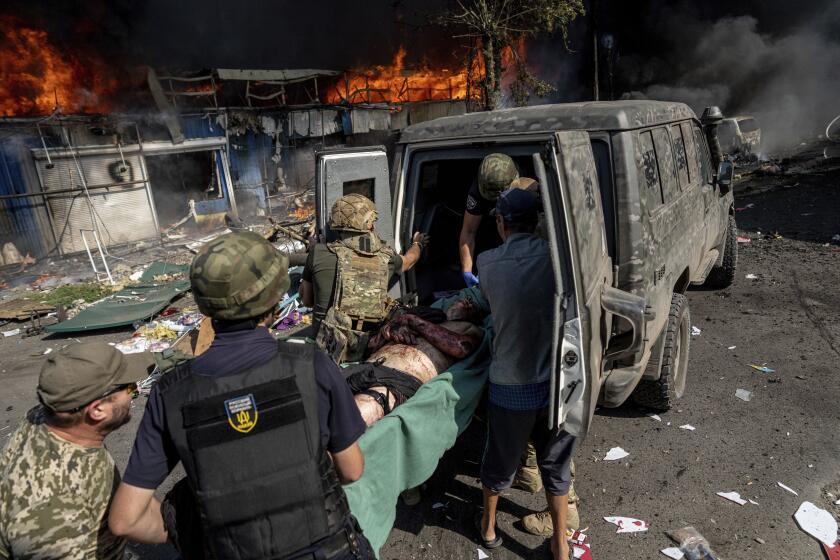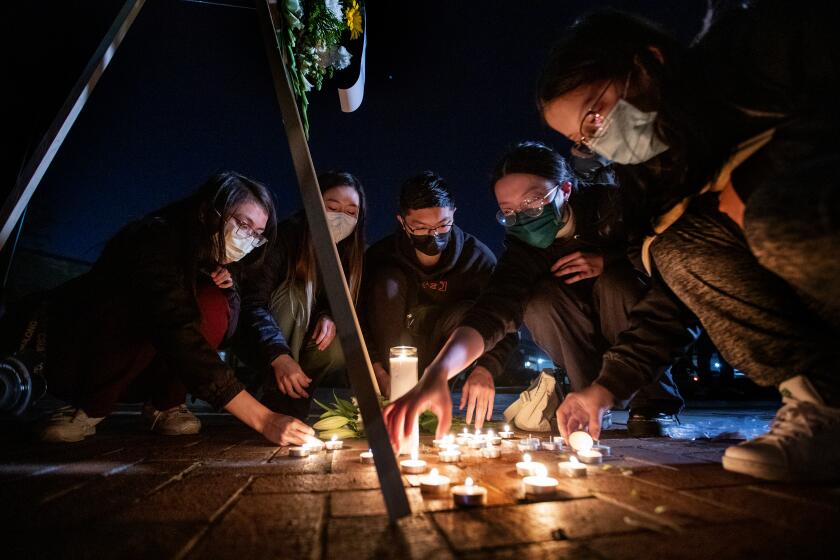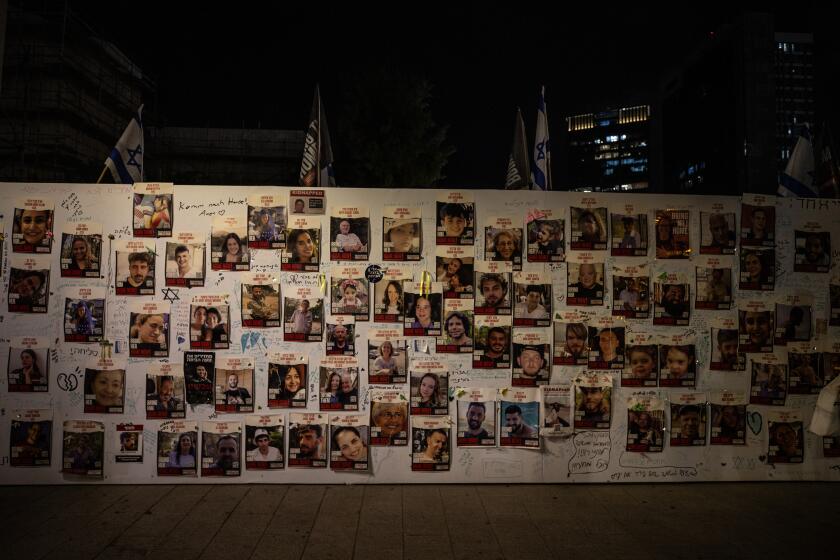How are people changed by being taken hostage by Hamas? By fleeing Israeli bombs?

- Share via
Violent conflicts and atrocities can seem omnipresent in the world — and all the more traumatic in an age when wars are fought by terrorizing civilians more than by squaring off against a rival military.
Wars and violent conflicts in Congo, Gaza, Israel, Nagorno-Karabakh, South Sudan, Ukraine, Yemen and many other places have resulted in complex trauma among civilians that involves a combination of repeated exposure to, among other experiences, aggression, constant fear for one’s life and the lives of loved ones, survivor’s guilt, fear of being taken hostage, displacement and isolation.
Conflicts now raging around the world have significant differences, but they are also connected.
Unsurprisingly, research among people exposed to war has long found increased levels of post-traumatic stress disorder, depression, anxiety, addiction and chronic pain. Complex trauma is also intertwined with historical trauma, in which the survivors’ pain and suffering are shaped by the history of aggression and occupation of their land and the stories about prior wars told by their parents and grandparents. Trauma of war and genocide can also be passed intergenerationally (from parents to children).
What does all this mean today in the months ahead for survivors of the Hamas attacks of Oct. 7, including those who have been held hostage? And for Palestinian civilians enduring persistent bombardment of Gaza by Israel?
Asian American communities are least likely of any racial or ethnic group to seek mental health resources.
At worst, the horrors suffered in 2023 could contribute to a continuous cycle of violence. Criminological theory and research indicate that victimization and trauma are extreme stressors that can instill anger and inspire subsequent violent behavior as a way to cope with anger. This is especially likely when other means of coping with trauma, such as social support, are not available.
Applying this theory to war, a study in Ukraine found that civilians who were in a war zone as well as those who experienced war indirectly by watching the news were more likely to engage in violence themselves. War exposure has been found to change people’s moral beliefs and perceptions of violence, rendering violent behavior more acceptable in certain situations.
If Gazans are forced into Egypt or elsewhere, they will only add to the 75-year-old Palestinian refugee crisis.
Attacks on civilians can also foment terrorism. Individuals joining terrorist organizations are often those who have experienced trauma such as loss of their loved ones and other extremely stressful events that are perceived as particularly unjust.
Although this pattern has replayed throughout history, it is not inevitable for Israelis and Palestinians or survivors of other conflicts. There are steps that their governments and the international community can take to minimize the damage from trauma and other secondary effects.
In Gaza conflict, words like ‘terrorism’ and ‘genocide’ are potent weapons. Definitions matter
Call a war crime a war crime, regardless of whether you support the perpetrator’s cause.
In the context of Israel’s latest war on Gaza and the West Bank, one priority should be the reunification of all Palestinian and Israeli hostages and displaced civilians with their families. Compared with other sources of support like governmental institutions, social support from family has been shown to be the most significant in reducing mental health issues associated with war trauma. This includes emotional support from family members as well as financial assistance and family support with accomplishing daily tasks.
Researchers, counselors, volunteers and others should also work in tandem to develop appropriate mental health resources for civilians in war-torn countries.
It is critical to consider each country’s unique social context and the historical trauma faced by different groups when creating such resources, rather than relying solely on existing Western-based psychiatric care. Some victims in vulnerable countries may be unaware of the manifestations of their trauma or may distrust mental health care and feel stigma from medical professionals. Conducting research on the beliefs and perceptions of mental health among war-affected individuals will help develop evidence-based and culturally sensitive strategies addressing war trauma.
We also need to increase the social awareness of trauma by providing resources to family members, co-workers, neighbors and others on how to use trauma-focused lenses when communicating, building relationships and supporting individuals who experience ongoing war trauma.
There’s one other step to minimize harms to and by traumatized individuals — and it’s the single most effective measure: Stop the violence. Israel’s bombardment of Gaza and any other military aggression causing civilian deaths will only create more violence and most likely will not prevent future attacks like those of Oct. 7, based on our best understanding of the causes of terrorism.
The global community should do everything it can to achieve a permanent humanitarian cease-fire in Gaza and unite in rebuilding the destroyed medical and other infrastructure there. The civilians suffering from war trauma are going to need it.
Anastasiia Timmer, an assistant professor of criminology and justice studies at Cal State Northridge, researches causes of violence in different countries and trauma of vulnerable populations.
More to Read
A cure for the common opinion
Get thought-provoking perspectives with our weekly newsletter.
You may occasionally receive promotional content from the Los Angeles Times.













